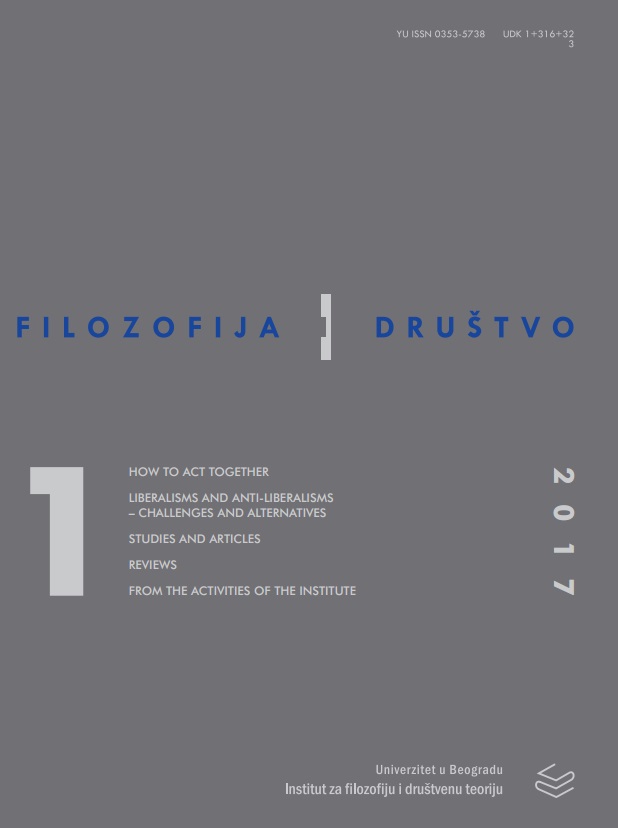Liberal Autonomy in a Troubled Context
Liberal Autonomy in a Troubled Context
Author(s): Nenad DimitrijevićSubject(s): Ethics / Practical Philosophy, Political Philosophy, History and theory of political science
Published by: Institut za filozofiju i društvenu teoriju
Keywords: autonomy; harm; morality; ethics; special duties; memory; acknowledgment
Summary/Abstract: Autonomy, understood as self-rule, is almost routinely accepted as one of the core liberal concepts. Still, a closer view reveals that both the status and meaning of autonomy are controversial. The text departs from a short summary of the main theoretical disputes surrounding the concept. A critique of the standard internalist account is followed by an attempt to offer reasons for accepting a relational reading of autonomy. The central question of the text is context-specific. It asks about the possibility and meaning of liberal autonomy in a society whose past is marked by mass regime-sponsored (and sometimes widely supported) crimes. The background assumption is that mass crime leaves actors in heteronomous condition. At stake is reestablishing individual autonomies of two types of actors, whose group-specific identities have been created by crime: the ethical community of those who share collective identity with victims, and the ethical community of those who share collective identity with perpetrators.
Journal: Filozofija i društvo
- Issue Year: 28/2017
- Issue No: 1
- Page Range: 90-109
- Page Count: 20
- Language: English

